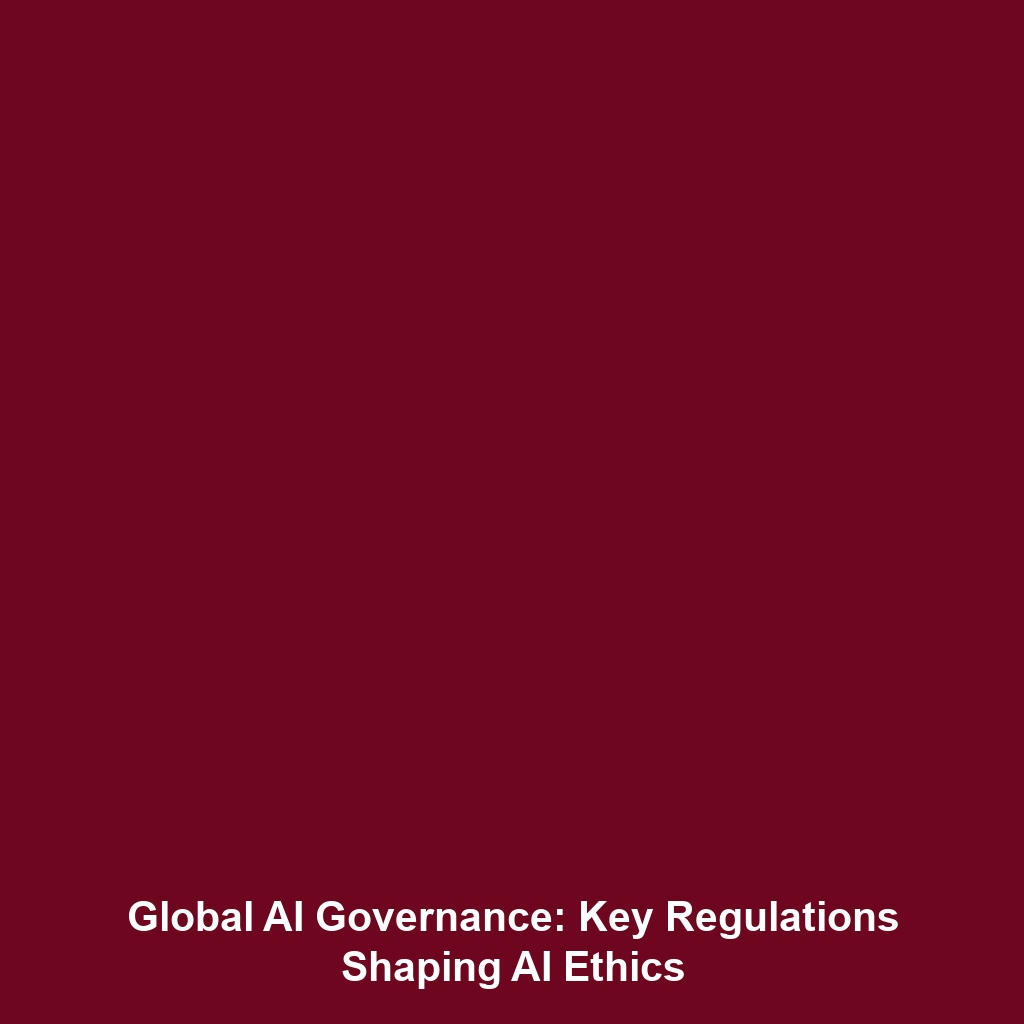AI Governance and Regulation: Global Efforts to Regulate AI Technologies
Introduction
As artificial intelligence (AI) continues to permeate various sectors, the imperative for AI Governance and Regulation has gained unprecedented significance, particularly within the realm of AI Ethics. The global community’s concerted efforts aim to ensure that AI technologies develop in a manner that is lawful, ethical, and aligned with societal values. With rising concerns about privacy, security, and fairness, understanding how nations approach regulation is crucial for fostering trust and accountability in AI development.
Key Concepts
AI Governance and Regulation encompass a set of principles and frameworks designed to oversee the development and deployment of AI technologies. These key concepts include:
- Accountability: Ensuring that individuals and organizations are responsible for their AI systems.
- Transparency: Promoting openness in AI decision-making processes to build public trust.
- Fairness: Addressing biases inherent in AI to prevent discrimination.
- Compliance: Aligning AI technologies with existing laws and regulations.
These principles form the backbone of AI Ethics and guide the efforts to create effective policies worldwide.
Applications and Real-World Uses
The applications of AI Governance and Regulation are manifold, particularly as they relate to AI Ethics. Some significant examples include:
- Healthcare: Regulations to ensure patient data privacy and the responsible use of AI in diagnostics.
- Finance: Guidelines aimed at preventing algorithmic biases in loan approvals and fraud detection.
- Autonomous Vehicles: Establishing safety standards and liability frameworks for self-driving technologies.
These instances illustrate how AI Governance and Regulation inform AI Ethics, ensuring that innovations are developed responsibly.
Current Challenges
The path toward effective AI Governance and Regulation is fraught with challenges and limitations:
- Rapid Technological Advancement: Keeping pace with the swift evolution of AI technologies poses regulatory hurdles.
- Global Discrepancies: Varying regulatory approaches across different countries complicate international standards.
- Ethical Ambiguities: Differing interpretations of ethical standards can lead to inconsistent applications of AI ethics principles.
These challenges underscore the need for ongoing dialogues and collaboration among stakeholders.
Future Research and Innovations
As we look to the future, significant research and innovations are likely to shape AI Governance and Regulation:
- Enhanced Data Privacy Technologies: Innovations aimed at greater data anonymization and user consent mechanisms.
- AI Auditing Frameworks: Development of methodologies for auditing AI systems’ decision-making processes.
- International Regulation Harmonization: Efforts to unify global regulations to address cross-border AI applications.
Such advancements are imperative to ensuring that AI Governance and Regulation remain relevant and effective in the fast-evolving landscape of AI Ethics.
Conclusion
In summation, AI Governance and Regulation plays a pivotal role in shaping the future of technologies through the lens of AI Ethics. As global efforts continue to mature, stakeholders must actively engage in discussions around accountability, transparency, and fairness. To learn more about related topics in AI Ethics and explore best practices, visit our extensive resources on AI standards and regulations.
